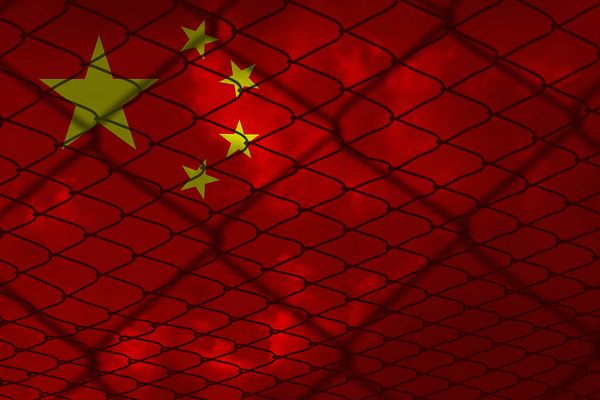US concerned about the Chinese Nuclear expansion
Washington, US:
This is contrary to China’s stance on nuclear weapons. People’s Liberation Army has tested a space-based nuclear delivery system in October, hinting that it is working on more weapons to counter the United States’ limited-capacity missile defence systems.
Historically, China always maintained that it keeps a significantly smaller nuclear arsenal than Russia or the US. China calls it ‘minimum deterrence’ meaning it has just enough nuclear to ensure Beijing’s retaliatory attack. Also, Beijing’s No First Use policy professes that nuclear weapons would only be used in response to an enemy’s nuclear first strike, reported the US-based think tank.
So is the current dramatic expansion of China’s nuclear arsenal a pretence?
Taken together two reports published in late 2021 offer a measured perspective on changes to China’s nuclear forces — Military and Security Developments Involving the People’s Republic of China released by the Department of Defense; and Chinese Nuclear Forces 2021 by Matt Korda and Hans Kristensen, said the think tank.
Now, the question arises that how many nuclear weapons does China possess, and how many does it want?
According to the Defense Department, China is estimated to have “low 200s” nuclear warheads in 2020, a total anticipated to be doubled, while the Bulletin of the Atomic Scientists put the figure at 350.
However, according to the Defense Department’s projection for 2021, a new normal has emerged.
“The accelerating pace of the People’s Republic of China ‘s (PRC) nuclear expansion may enable the PRC to have up to 700 deliverable nuclear warheads by 2027,” the report states. “The PRC likely intends to have at least 1,000 warheads by 2030, exceeding the pace and size the DoD projected in 2020.”, the think tank said.
The United States, for example, has 1,550 nuclear bombs on active duty and many more in reserve. Meanwhile, the inventory of the People’s Liberation Army (PLA) is estimated to be in the low hundreds.
Is Beijing now more likely to employ nuclear weapons as a form of coercion, including more “usable” tactical nuclear weapons with lower yields?
Military and Security Developments Involving the People’s Republic of China, published by the Department of Defense, and Chinese Nuclear Forces 2021, by Matt Korda and Hans Kristensen, published by the Bulletin of the Atomic Scientists, are two reports worth reading about China’s nuclear doctrine and capabilities. Despite their differences in epistemological orientations, the assessments as a whole provide a balanced view of China’s nuclear forces.
How many nuclear weapons does China possess, and how many does it want? The Defense Department estimated China had “low 200s” nuclear warheads in 2020, with the total anticipated to double, while the Bulletin of the Atomic Scientists put the figure at 350.
However, according to the Defense Department’s projection for 2021, a new normal has emerged.
“The PRC’s nuclear growth may accelerate to the point where it has up to 700 deliverable nuclear warheads by 2027,” according to the research. “By 2030, the PRC is anticipated to have at least 1,000 warheads, much exceeding the pace and magnitude projected by the Pentagon in 2020.”
Furthermore, US researchers with the help of satellite imagery spotted 300 missile silos under construction in various remote areas of China.
That includes 120 silos in Yumen, Gansu province; 110 silos near Hami in eastern Xinjiang province; and 80 silos at the Ordos, Inner Mongolia, which is a region in China, the think tank said.
The Bulletin warns that the US Defense Department’s prediction appears to be based on Chinese silo building. The Bulletin warns that some silos may remain empty, forcing US nuclear strategists to waste counterforce missiles in a “shell game” tactic.
Another question is, does china has a radioactive chemical element, plutonium for the Nuclear Missile buildup?
The US-based think tank said, China ceased military plutonium production in the mid-1980s, but has enough material on hand to double force size according to the Bulletin–“but a tripling–and certainly a quadrupling–would probably require the production of additional material.”
These could produce enough material for 990-1,550 warheads according to the Bulletin which “could exceed [the intercontinental ballistic missile force] of either Russia and the United States.”
On the other hand, Russia and the US maintain a Launch-on-Warning posture (LoW), with land-based nuclear missiles on high alert 24 hours a day. These missiles are ready to launch a counter-attack as soon as an incoming strike is detected.
The Defense Department report claims China too is adopting a “posture called ‘early warning counter strike’ which is broadly similar to the U.S. and Russian LoW postures”, the think tank said.
Pentagon’s report clearly indicates that China is on the track of significant expansion of its nukes and raises concern over Beijing’s increasingly aggressive stance











